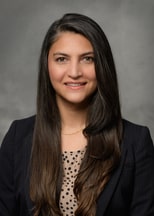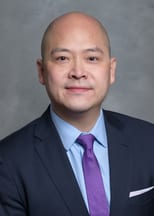By
Saba Zafar, Esq.
and
Daniel J. Park, Esq.
On June 15, 2022, the United States Supreme Court issued its long-awaited decision in Viking River Cruises, Inc. v. Moriana (U.S.S.C. Case No. 20-1573), holding that California employers can enforce arbitration agreements, thereby requiring employees to arbitrate individual claims under the Private Attorneys General Act (“PAGA”). The Court also held that once the employee’s individual claims under PAGA are compelled to arbitration, the employee would no longer have standing to pursue representative claims under PAGA brought on behalf of other aggrieved employees in court. Importantly, the Court left open the possibility that in the future, the California Legislature could amend the PAGA to not allow the splitting of individual and non-individual claims between arbitration and court.
Background and Summary
The PAGA authorizes an “aggrieved employee” to bring a lawsuit against their employer “on behalf of himself or herself and other current or former employees” to obtain civil penalties for alleged Labor Code violations. California law states that PAGA suits are representative actions in the sense that an employee sues an employer as an agent or proxy of the State. In addition, the employee can sue not only for alleged Labor Code violations that they experienced (individual claims) but also for alleged violations that any other employee of the same employer experiences (non-individual claims).
Since its passage in 2004, PAGA has been hotly contested especially as to whether PAGA claims are subject to arbitration. Generally, the Federal Arbitration Act (“FAA”) protects parties’ rights to enter into agreements to arbitrate disputes. However, California’s Supreme Court has long held that an arbitration agreement whereby the employee agreed to waive the right to bring a representative action pursuant to PAGA was unenforceable under California law. In addition, California’s Supreme Court held that, under PAGA, an employee cannot agree to arbitrate only their individual claims without arbitrating the non-individual claims as well.
Based on the foregoing, in the lower California court, the employer Viking Rivers Cruises lost its motion to compel arbitration against employee Moriana. Viking Rivers Cruises appealed the case up to the U.S. Supreme Court. While rejecting both the employer and employee’s actual arguments, the Court reversed the decision to deny arbitration based on an entirely different reason. Simply put, the Court reasoned that a PAGA claim is composed of both an aggrieved employee’s individual PAGA claim(s) as well as non-individual claims which the employee brings on behalf of other aggrieved employees. Breaking from California’s Supreme Court’s ruling, the Court ruled the individual and non-individual claims can be separated, and held that the individual PAGA claims are subject to arbitration pursuant to the FAA. Since the employee’s individual PAGA claims are subject to arbitration, the employee would then lose standing to pursue the remaining PAGA claims brought on behalf of other aggrieved employees in court based on PAGA’s current statutory language.
Unfortunately, this is likely not the end of the story for PAGA in California. The Court distinctly left open the opportunity for the California Legislature to (and some concurring opinions strongly urged that they should) amend the scope of PAGA so that the non-individual claims would not need to be dismissed when arbitration is compelled. What does this mean? Under current law, the employee’s non-individual PAGA claims require dismissal because PAGA provides no mechanism for a court to adjudicate such claims once the individual PAGA claims are separated and sent to arbitration. It will remain to be seen if – and how quickly – California’s pro-employee Legislature will come to the aid of California workers and amend PAGA.
Employer Takeaway:
For now, voluntary arbitration agreements that preclude representative actions, including PAGA, are enforceable. Therefore, an employer may compel an employee to arbitrate their individual PAGA. The employee would then lack standing to assert representative PAGA claims on behalf of others in court and arguably, those collective claims should be dismissed.
Because employment arbitration agreements have been subject to many changes over the past months (more of which you can read about here and here), employers are advised to have employment counsel update their arbitration agreements to ensure compliance with recent changes. If you have any questions about how this ruling may affect your business, or need assistance preparing a compliant arbitration agreement, please contact your attorneys at Bradley, Gmelich & Wellerstein LLP. We are here to help.

Jaimee K. Wellerstein, Esq. is a Partner at Bradley, Gmelich & Wellerstein LLP, and the Head of the firm’s Employment Department. Jaimee concentrates her practice on representing employers in all aspects of employment law, including defense of wage and hour class actions, PAGA claims, discrimination, retaliation, harassment, wrongful discharge, misclassification, and other employment-related lawsuits. She also provides employment counseling and training in all of these areas.
Jaimee routinely represents employers in federal and state courts and in arbitration proceedings throughout the state, as well as at administrative proceedings before the Equal Employment Opportunity Commission, the California Department of Labor Standards Enforcement, the United States Department of Labor, and other federal and state agencies.
Jaimee assists as a Legal Advisor to CALSAGA and is a member of ASIS International. She is rated AV-Preeminent by Martindale-Hubbell, the highest peer rating available. jwellerstein@bgwlawyers.com

Saba Zafar, Esq. is Special Counsel in Bradley, Gmelich & Wellerstein LLP’s Employment Law Department. Saba has over a decade of experience as an attorney, primarily in employment law. Saba focuses her practice on providing strategic advice and counsel in all aspects of employment law and workplace matters, including drafting and implementation of HR policies and procedures, Employment Handbooks, and providing advice to clients on personnel issues as well as general business matters.
Prior to joining the firm, Saba was a Senior Counsel providing advice and counsel to mid-sized to large businesses on employment law compliance and day-to-day employment issues, including implementing policies and procedures, employee classifications, employment separations, managing and disciplining employees, and COVID-19 rules and regulations. Saba also handled a wide variety of employment matters in state and federal court, including cases involving wrongful termination, discrimination, and wage-related cases.
In her spare time, Saba has volunteered as a Mediator for the Department of Consumer Affairs and the Orange County Human Resources Department. She was also a Volunteer Tutor for Schools on Wheels, tutoring elementary school students on skid row in Los Angeles. Prior to practicing law, Saba was a Judicial Extern for the California Court of Appeal, Second Appellate District.
In her free time, Saba enjoys embarking on culinary adventures and catching up on new television shows.

Prior to joining the Firm, Mr. Park served as a Complex Litigation Associate Attorney at a law corporation in Pasadena managing an extensive caseload of consumer-sided class action wage and hour and representative actions from initiation to settlement in state and federal courts across California. He also represented many small business and real estate debtors in Chapter 11 bankruptcy litigation matters.
Prior to practicing law, Mr. Park served as the Chief Financial Officer and was on the Board of Directors for an organization created to assist homeless families in finding employment and permanent housing. He also served on the Board of Directors for a foundation that raised capital funding for minorities and low-income families for accessibility to higher education.

